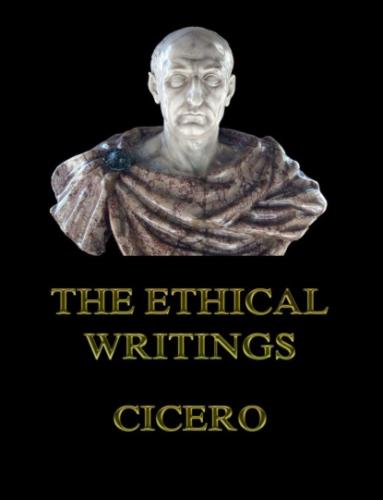18. In discharging all these duties, we ought to consider what is most needful for each person, and what each person either can or cannot obtain without our aid. Thus the degrees of relationship will not correspond with those of the occasions for our kind offices; and there are duties which we owe to some rather than to others, on grounds independent of their connection with us. Thus you would help a neighbor rather than a brother or an intimate friend in harvesting his crops; while in a case in court you would appear as an advocate for your kinsman or friend rather than for your neighbor. These and similar points are to be carefully considered in every department of duty, and we should practise and exercise ourselves so that we may be good calculators of duty, and by adding and subtracting may ascertain the remainder, and thus know how much is due to each person. Indeed, as neither physicians, nor commanders, nor orators, though they understand the rules of their art, can accomplish anything worthy of high commendation without practice and exercise; so, though the precepts for the faithful discharge of duty be delivered, as I am delivering them now, the very greatness of the work which they prescribe demands practice and exercise. I have now shown, with nearly sufficient fulness of detail, how the right, on which duty depends, is derived from the constituent elements of human society.
It is to be observed that of the four sources from which right and duty flow, the greatest admiration attends that consisting in a large and lofty mind which looks down on human fortunes. Thus, when reproach is intended, nothing occurs more readily than utterances like this, —
“Ye, youths, indeed show but a woman’s soul;
That heroine, a man’s;”—
or this, —
“Give, Salmacis, Ref. 043 spoils without sweat and blood.” Ref. 044
On the other hand, in panegyrics, our speech rolls on with a fuller flow when we praise deeds that have been wrought with a large mind, bravely and grandly. Hence the field for eloquent discourse about Marathon, Salamis, Plataea, Thermopylae, Leuctrae; hence the fame of our own fellow-countrymen, Cocles, the Decii, Cneius and Publius Scipio; hence the glory of Marcus Marcellus, and of others more than can be numbered; and the Roman people, as a nation, excels other nations chiefly in this very greatness of soul. In particular, the prevailing love for glory in war is manifested in the almost uniform clothing of statues in military attire. Ref. 045
19. But this loftiness of spirit, manifested in peril and in toil, if devoid of justice, and contending for selfish ends, not for the public good, is to be condemned; for not only does it not appertain to virtue, — it belongs rather to a savageness that spurns all human feelings. Ref. 046 Therefore courage is well defined by the Stoics as the virtue that contends for the right. No one, then, who has sought a reputation for courage by treachery and fraud, has won the fame he sought. Nothing that is devoid of justice can be honorable. It was well said by Plato: “Not only is knowledge, when divorced from justice, to be termed subtlety rather than wisdom; but also the soul prompt to encounter danger, if moved thereto by self-interest, and not by the common good, should have the reputation of audacity rather than of courage.” Therefore I would have brave and high-spirited men also good and simple, friends of truth, remote from guile, — traits of character which belong to the very heart of justice. But the mischief is, that in this exaltation and largeness of soul obstinacy and an excessive lust of power very easily have birth. For as, according to Plato, the entire character of the Lacedaemonians was set on fire by the desire for victory, so now, in proportion as one surpasses others in grandeur of soul, he is ambitious to hold the foremost place among those in power, or rather, to rule alone. Now it is hard, when you covet pre-eminence, to maintain the equity which is the most essential property of justice. Hence it is that such men suffer themselves to be overcome neither in debate nor by any legal or constitutional hindrance, and in the state they, for the most part, employ bribery and intrigue that they may acquire the greatest influence possible, and may rise by force, rather than maintain equality with their fellow-citizens by justice. But the greater the difficulty, the greater the glory. Nor is there any occasion that ought to be devoid of justice. Therefore not those who inflict, but those who repel, wrong ought to be deemed brave and magnanimous. A soul truly and wisely great regards the right to which the nature of man aspires as consisting in deeds, not in fame; it chooses to be chief rather than to seem so. On the other hand, he who depends on the waywardness of the undiscerning multitude does not deserve to be reckoned among great men. But in proportion to a man’s towering ambition, he is easily urged by the greed of fame to deeds averse from justice. His is a slippery standing-ground; Ref. 047 for we seldom find a man, who, for labors undertaken and dangers encountered, does not demand fame as the price of his exploits.
20. A brave and great soul is, in fine, chiefly characterized by two things. One of these is the contempt of outward circumstances in the persuasion that a man ought not to admire or wish or seek aught that is not right and becoming, or to yield to human influence, or to passion, or to calamity. The other is that, with this disposition of mind, one should undertake the conduct of affairs great, indeed, and, especially, beneficial, but at the same time arduous in the highest degree, demanding severe toil, and fraught with peril not only
